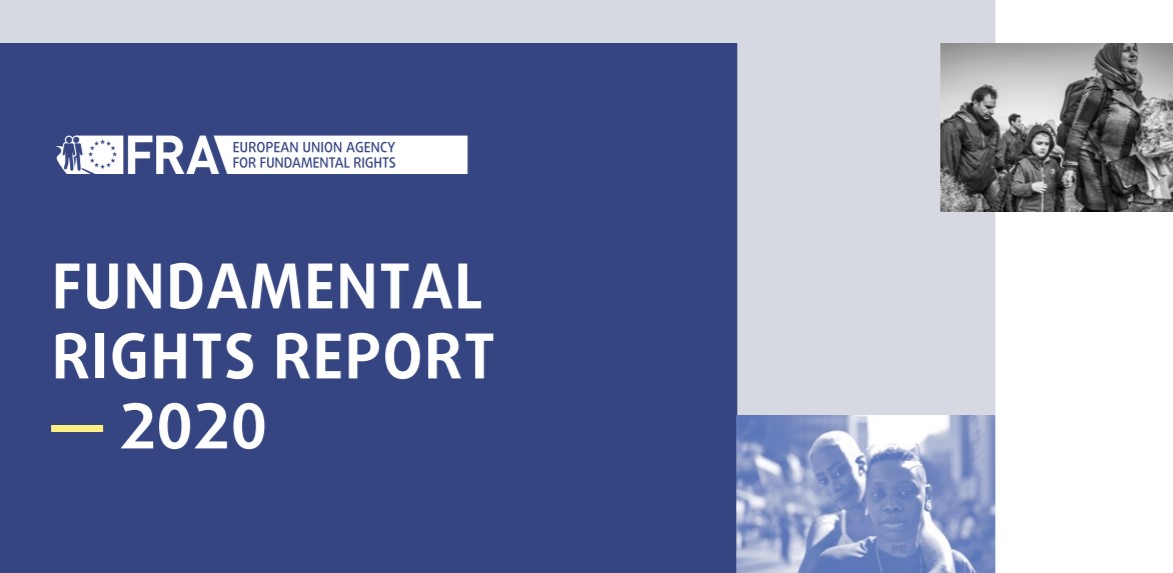Fundamental Rights Report 2020: Limited progress in tackling discrimination and inequality in education
Published:
Related topics
On 11 June, the European Union Agency for Fundamental Rights (FRA) launched its annual report on the fundamental rights situation in the EU. The report shows that a lot remains to be done in order to fight discrimination, harassment and inequalities in all areas of life, including in education. In many countries, certain groups – Roma, refugees and migrants, people with disabilities – still do not have equal access to learning opportunities and suffer from discriminatory practices such as segregation.
The paper highlights existing inequalities and discrimination in education at national and regional level:
- Discrimination against Roma children and segregation in education remains a challenge. They are significantly more often placed in separate schools or classrooms, or in ‘special needs schools’. The European Commission continued with infringement proceedings concerning discrimination against Roma children in education in Czechia, Hungary and Slovakia. In a Statement on the EU post-2020 Roma equality and inclusion policy, ETUCE highlights that non-discriminatory high-quality education is crucial for eliminating poverty and ending the exclusion of Roma people.
- The report also notes the difficult living situation for refugees and migrants in overcrowded camps in countries like Greece, Cyprus and Malta. Detention of children seems also to be on the rise. Families or unaccompanied children in detainment often suffer from a lack of privacy, insufficient access to education and missing age-appropriate activities for children. ETUCE and EFEE have issued Joint Practical guidelines on how to promote effective integration of migrant refugee learners in the education and socio-economic environment of the host countries through joint social partner initiatives.
- Progress towards inclusive education for people with disabilities is limited. In some countries, there is a lack of reasonable accommodation to enable inclusive education (e.g. in Slovakia); authorities allocate insufficient resources (e.g. in Malta); systems remain separate for children with and without disabilities (e.g. in Cyprus); or there is an increase of children in special education (e.g. in the French speaking Community of Belgium). In a Statement regarding the implementation of the European Disability Strategy 2010-2020, ETUCE highlights indeed the crucial need for consistent funding and for social dialogue in order to build inclusive education systems.
Furthermore, the FRA report underlines how the internet brings opportunities for children – interaction with peers, knowledge acquirement and personality development – but is also attached to risks such as abuse imagery, bullying and data protection issues.
This year’s report also puts a special focus on the Charter of Fundamental Rights of the European Union, which has been legally binding for ten years and has “sparked a new fundamental rights culture”. Linked to the Charter, FRA urges the EU to adopt the Equal Treatment Directive without further delay, as this would ensure that EU legislation offered protection against discrimination on the grounds of age, disability, religion or belief and sexual orientation in areas such as social protection, healthcare, and last but not least, education.
ETUCE strongly believes that education is a fundamental right as stipulated in Article 26 in the Universal Declaration of Human Rights and should therefore be accessible to everyone with no exception. With this aim in view - promoting high quality and accessible public education to all - the ETUCE Special Conference adopted the Resolution on establishing the Action Plan on Equality, Diversity and Inclusion in 2018. This Action Plan is to be presented at the ETUCE Conference in December 2020 and will offer a comprehensive long-term strategy for ensuring equality, inclusion and non-discrimination in education and society, based on concrete actions which ETUCE member organisations can apply in their own work.